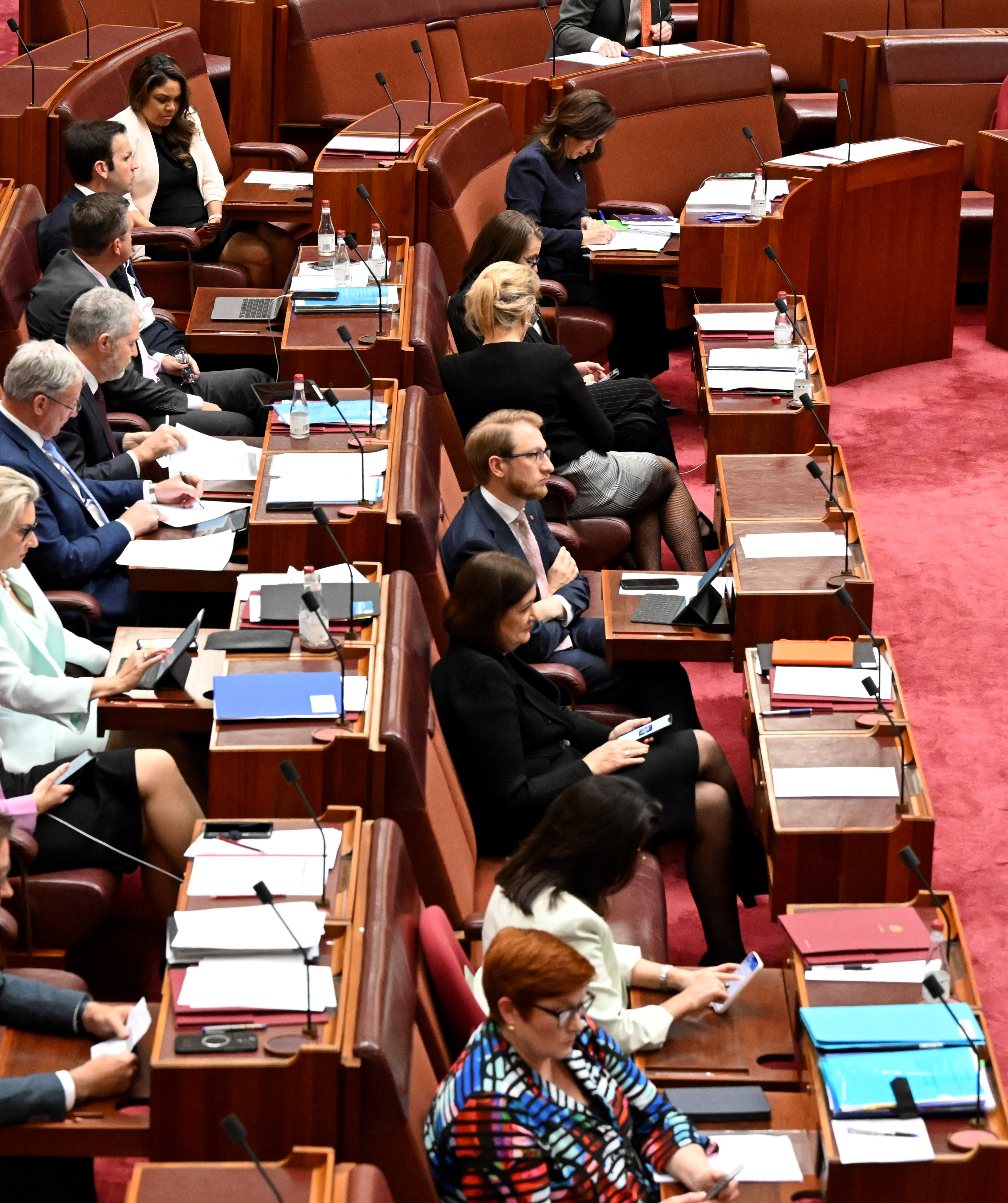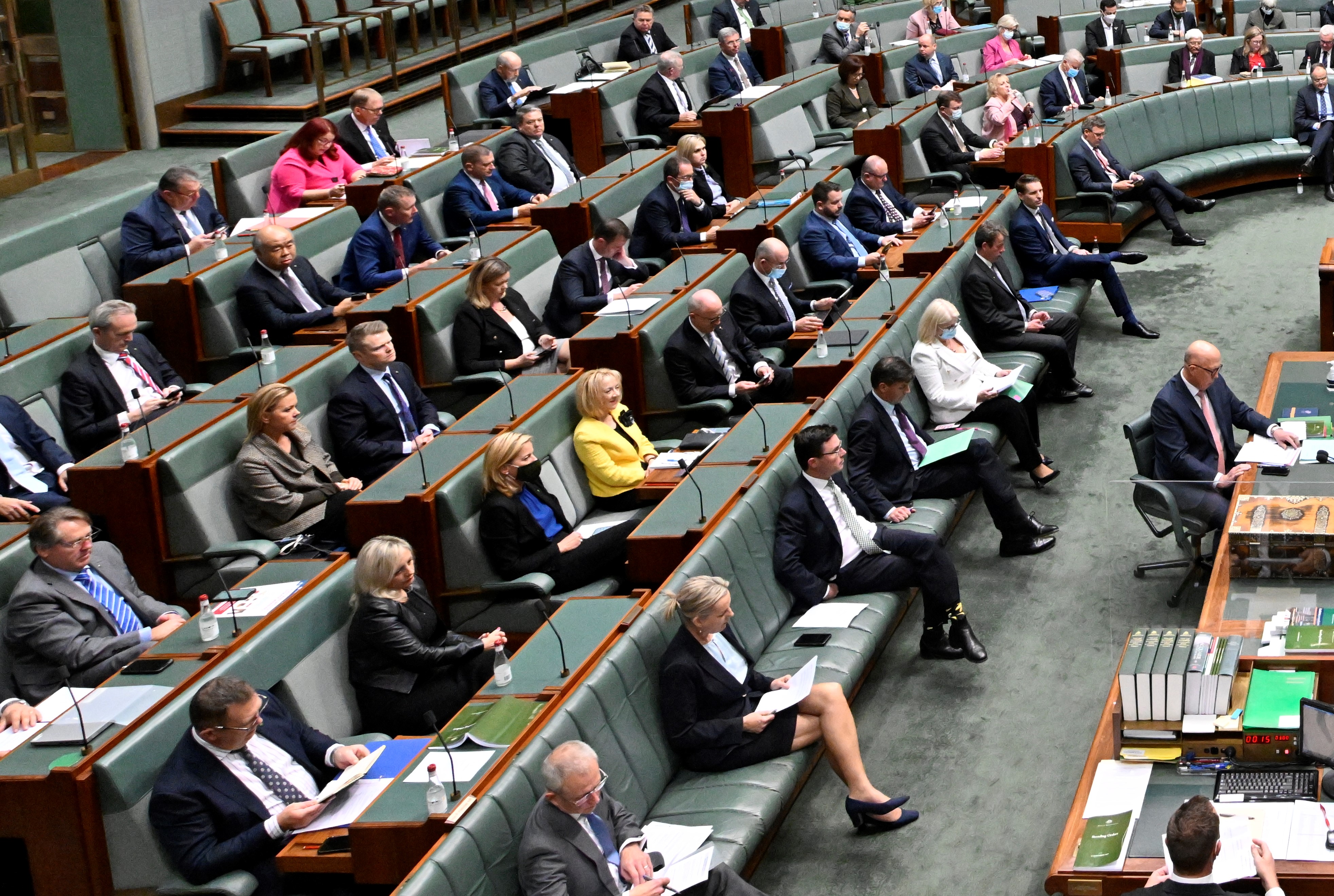Frontbenchers and backbenchers
This fact sheet investigates the work of frontbenchers (members of parliament who sit on the front seats of either the Senate or House of Representatives) and backbenchers (members of parliament who sit in the rows of seats behind the frontbench).
What will I learn?
- Frontbenchers are ministers and shadow ministers.
- Backbenchers do lots of work investigating and debating bills.
Who are frontbenchers?
Ministers and shadow ministers are frontbenchers. They sit on the front row of the seats in either the Senate or the House of Representatives.
Role of frontbenchers
Shadow ministers in the Senate.

Paul Furness/DPS Auspic
Description
Shadow ministers sit in the front row of the Senate benches.
Copyright information
Permission should be sought from DPS AUSPIC for third-party or commercial uses of this image. To contact DPS AUSPIC email: auspic@aph.gov.au or phone: 02 6277 3342.
Government frontbenchers are ministers who have been given a portfolio– an area of responsibility. In the Senate and House, the role of a minister includes introducing bills and answering questions about their portfolio during Question Time.
Opposition frontbenchers are shadow ministers who have been given the responsibility of scrutinising - closely examining - the work of a particular minister and their portfolio. In the Senate and House, the role of a shadow minister includes speaking about opposition plans and asking ministers questions during Question Time.
Who are backbenchers?
Backbenchers are members of parliament who are not ministers or shadow ministers; they sit in the rows of seats behind the frontbench.
Most members of parliament start their parliamentary career as a backbencher. A promotion to the frontbench means not only a change in role but a change of seat.
The opposition side of the House of Representatives

Penny Bradfield/DPS Auspic
Description
Opposition members sit together in rows in the House of Representatives during a meeting. The Leader of the Opposition sits in a chair at the main table. The opposition is the largest party or coalition of parties that does not have the support of the majority of members in the House of Representatives.
Copyright information
Permission should be sought from DPS AUSPIC for third-party or commercial uses of this image. To contact DPS AUSPIC email: auspic@aph.gov.au or phone: 02 6277 3342.
Role of backbenchers
Backbenchers do most of the work debating and voting on bills – proposed laws – in the Senate and House. They also work to draw attention to electorate or state and territory issues by speaking about them in Parliament.
When not in the Senate or House, backbenchers provide help and services to their community, and investigate bills and issues in committees.